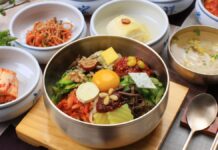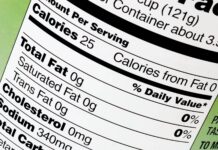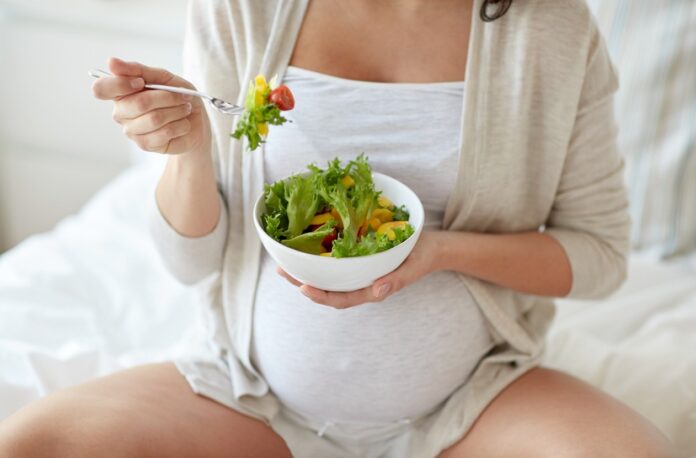
Learning that they are about to become parents for the first time is one of the greatest feelings in one’s life. Still, at the same time it can be kind of scary, simply because people are faced with something that is unknown to them, and even though they have heard stories about other people’s experiences, shaking off this feeling is not easy at all.
This is especially true for moms-to-be because now, they have to take extra care of themselves and do their best to have a healthy pregnancy. Obviously, it all begins with the diet. Due to this reason, in this article, we are going to completely focus on it, and provide you with some tips on how to ensure that everything goes perfectly.
Start a healthy diet program
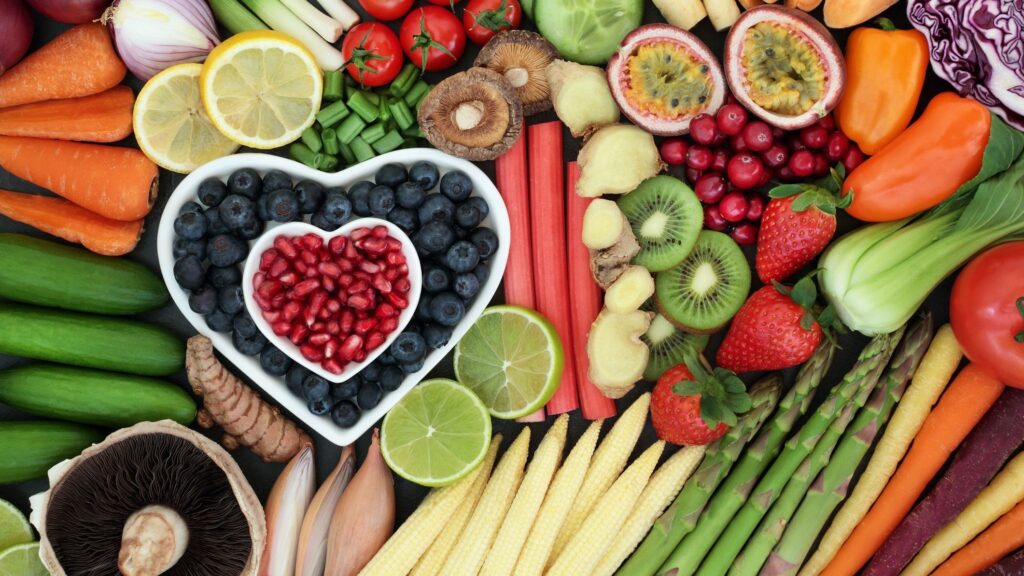
Let’s be realistic, the chances are that your diet includes some not-so-healthy choices. This is understandable since we live faced-paced lives, and oftentimes, it is easier to stop by the store and grab lunch instead of cooking it at home. However, the moment you learn that you are pregnant, you have to give up this habit.
In order to ensure that your pregnancy goes smoothly and also that your baby grows to be strong and healthy, you have to change your diet i.e. eliminate processed food and start eating freshly cooked meals and ingredients.
What’s more, this is also of utmost importance if you are faced with fertility problems. Unfortunately, this is a common issue that many couples have to deal with. If you are currently fighting this battle, you should visit the Tonic Natural Health website to learn more about the food that you should eat that will increase your chances of conceiving.
What to eat?
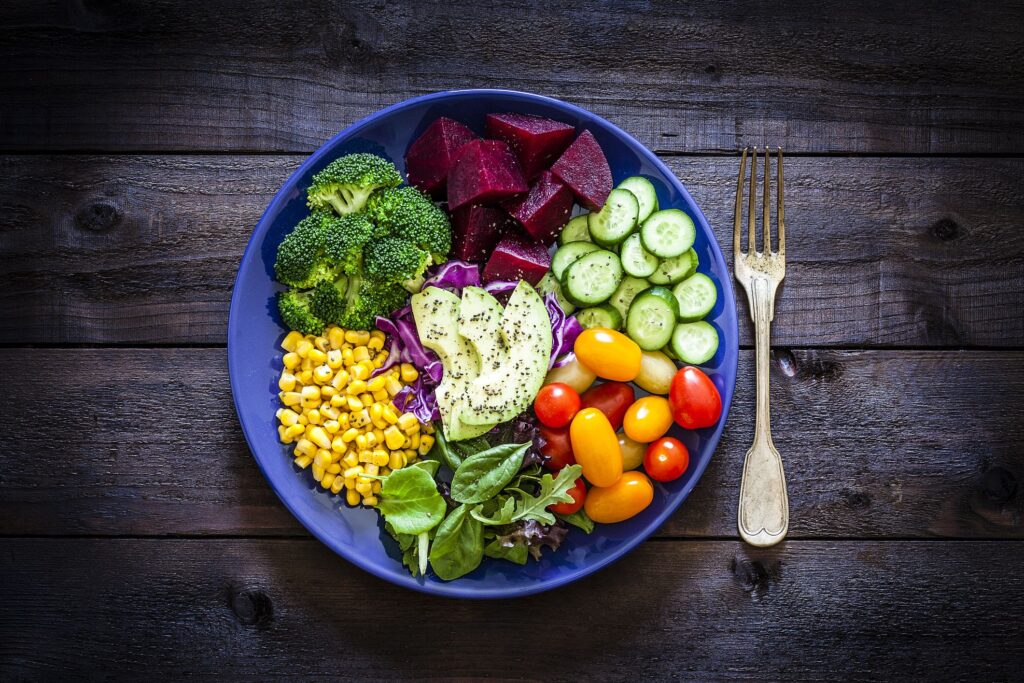
The most important requirement that you have to meet is to ensure that your diet is nutritious and balanced. Yes, you should increase the intake of certain foods, and at the same time, decrease the intake of others.
Vitamins
Firstly, let’s discuss the basics – vitamins. As you know, fruits and vegetables are the best sources of all the vitamins that you need. Naturally, the fresh ones should always be your first choice, but you can also opt for dried, canned, and frozen. When it comes to the last one, it is recommended to go with the fruits that have been frozen immediately after packing because, this way, all the nutrients are preserved.
A general rule is to always try to eat the fruits instead of blending and mixing them together. Why? Well, the sugar levels in juice can be quite high, and even though it is completely natural, you should still be careful about it.
Proteins
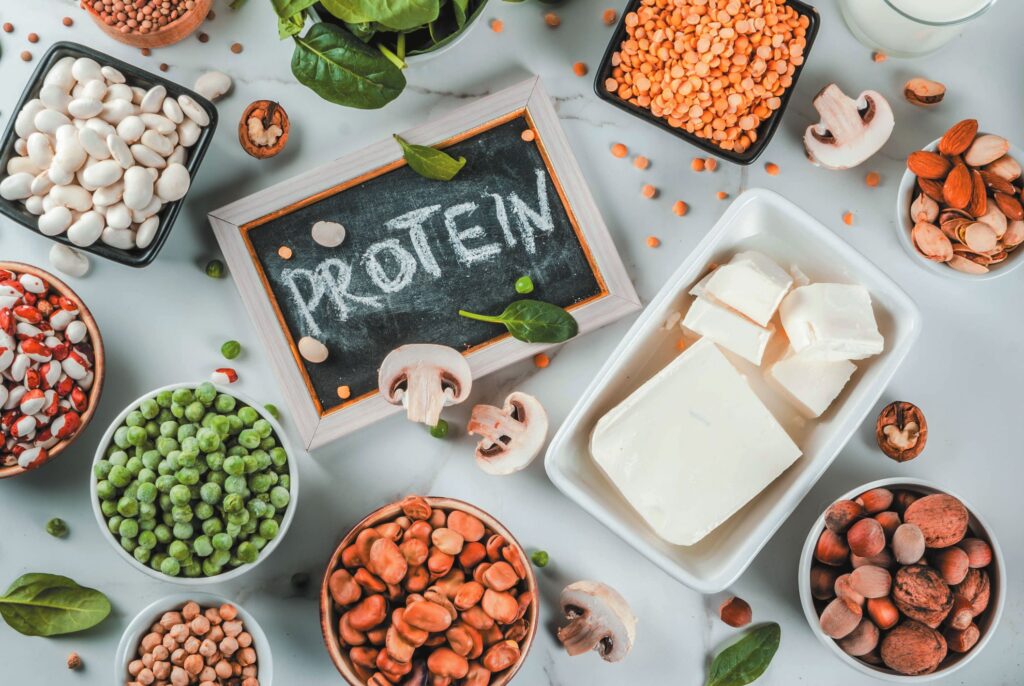
On the ladder of importance, proteins are right behind vitamins. First of all, you should ensure that your diet is based on lean meat, fish, chicken, and eggs. In case you are vegan quinoa seeds and tofu, as well as nuts, legumes, beans, and lentils, are also great sources of proteins. When it comes to seafood, there has been a lot of debate about whether or not it should be on a pregnant lady’s menu. According to research, women who eat it during their pregnancy had lower levels of anxiety, which is an important benefit, especially during this time.
Fiber, Calcium, Zinc
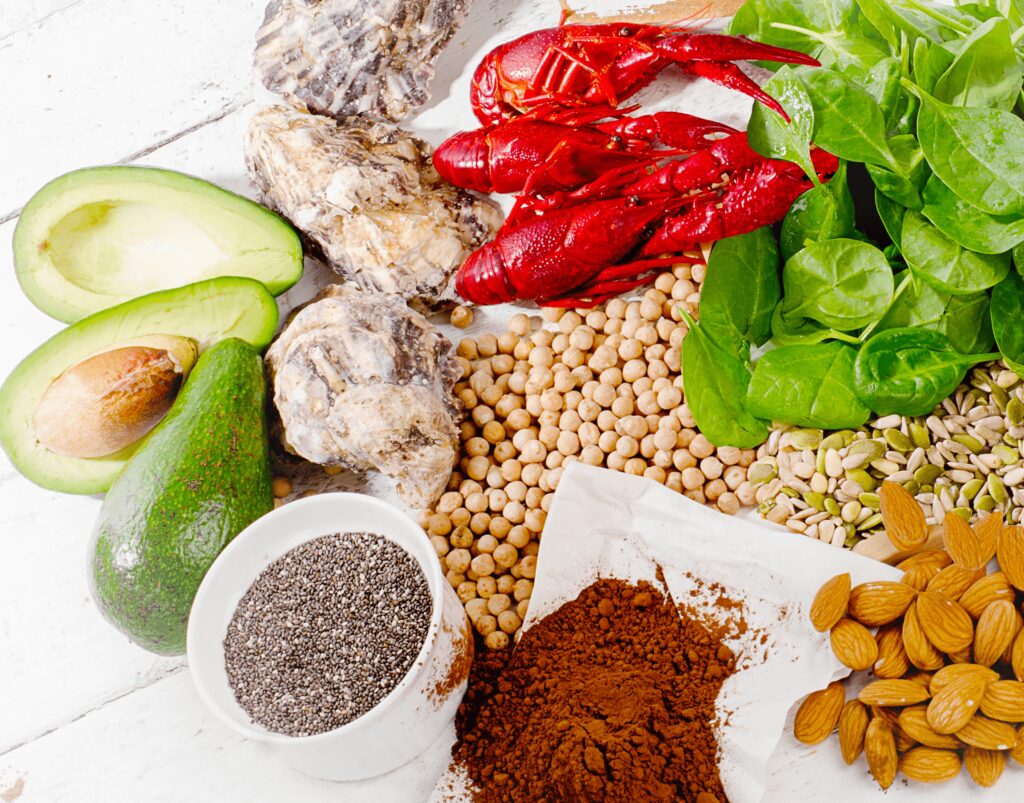
First things first, fibers are of utmost importance in everyone’s diet, and they are especially significant when it comes to pregnancy. During this time, a lot of women are at risk of developing constipation issues, as well as hemorrhoids. In order to prevent these from happening, you should eat whole grain pasta and bread, wild rice, and other foods that are rich in fiber.
Moreover, dairy products such as milk, yogurt, and cheese are rich in calcium. Once again, if you are vegan, you should increase the intake of plant milk such as soymilk, calcium-set tofu, as well as mustard greens, broccoli, kale, beans, and so on.
You might not know this, but zinc is an essential element when it comes to the development and growth of the fetus. Due to this reason, turkey, ham, and chicken should be regularly on your meal plan, but also don’t forget to include nuts, rice, pasta, eggs, ginger, oysters, crab, etc.
What not to eat?
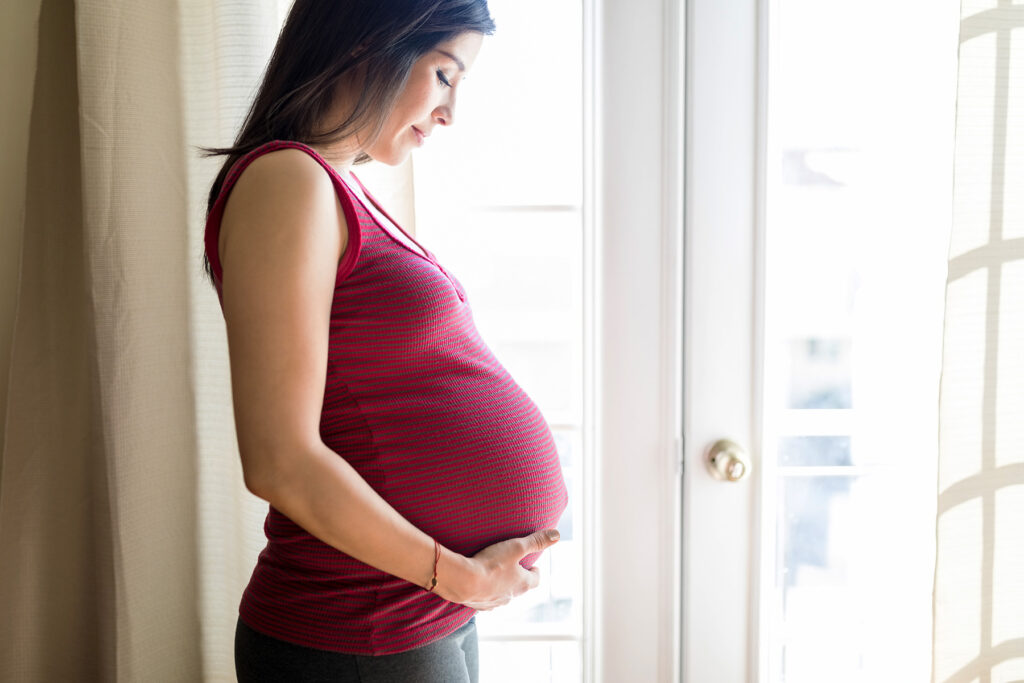
You probably know that there are certain types of foods that pregnant women should avoid, mainly due to the reason that these can contain harmful bacteria. We have already mentioned seafood, but you should stay away from uncooked or undercooked fish such as sushi. Naturally, the same thing goes for meat and poultry. In addition, you also shouldn’t eat unpasteurized milk and soft cheeses such as goat cheese and feta. One more thing, you also have to stay away from fish that is high in mercury, such as king mackerel, shark, swordfish, bigeye tuna, and others.
Figure out the right amount of calories
People usually say that pregnant women should eat twice as much food because, well, they are eating for two. However, this is not necessarily true. For example, during the first trimester, there is no need to increase the intake of calories. When it comes to the second and third ones, you will probably need about 340 and 450 extra calories, respectively.
Make smart choices
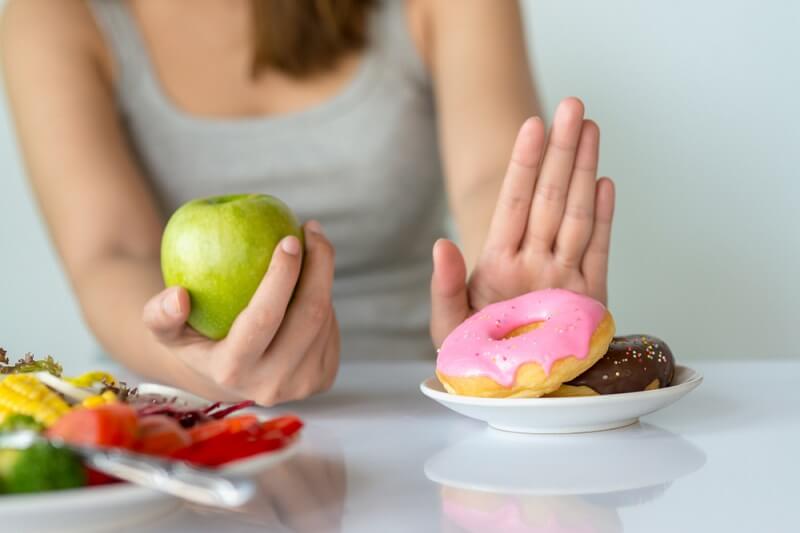
We know that pregnancy cravings can be too strong sometimes, and it is okay to eat something processed or sweet, but still, you should try to make smart choices as often as possible. This is especially true when it comes to the snacks, and you should try to go with a fruit salad, or fruit yogurt, just make sure to get the one that is fat-free and low in sugar. If you don’t have any ideas on what healthy snacks to prepare, the Internet is filled with recipes, so all you have to do is find the one that includes all your favorite ingredients.
Take prenatal vitamins
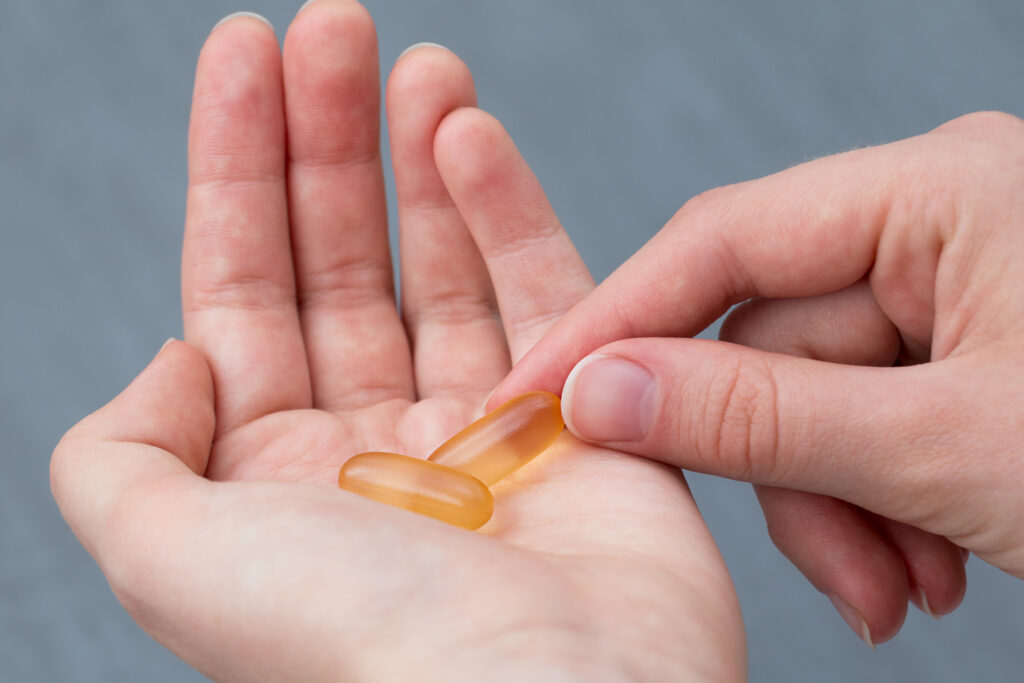
Finally, even though we have already discussed natural vitamins that you can get from fruits and vegetables, you will also have to take these because they contain iron and iodine which ensure yours and your baby’s health, and also folic acid that can prevent numerous birth defects. Obviously, you shouldn’t take these on your own, so you will need to take with your doctor, and they will prescribe the right ones for you.


